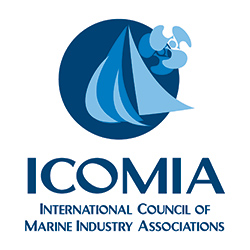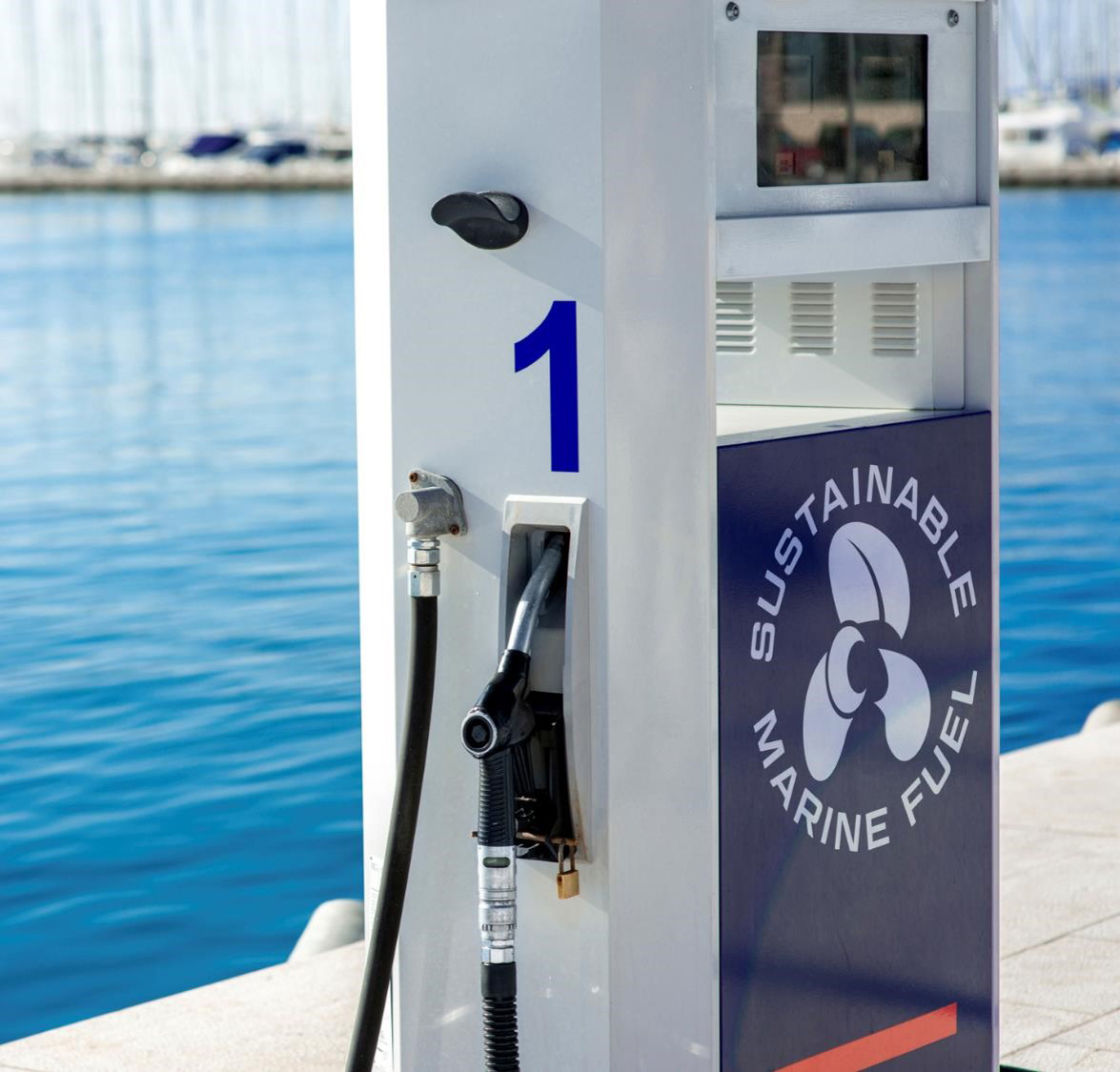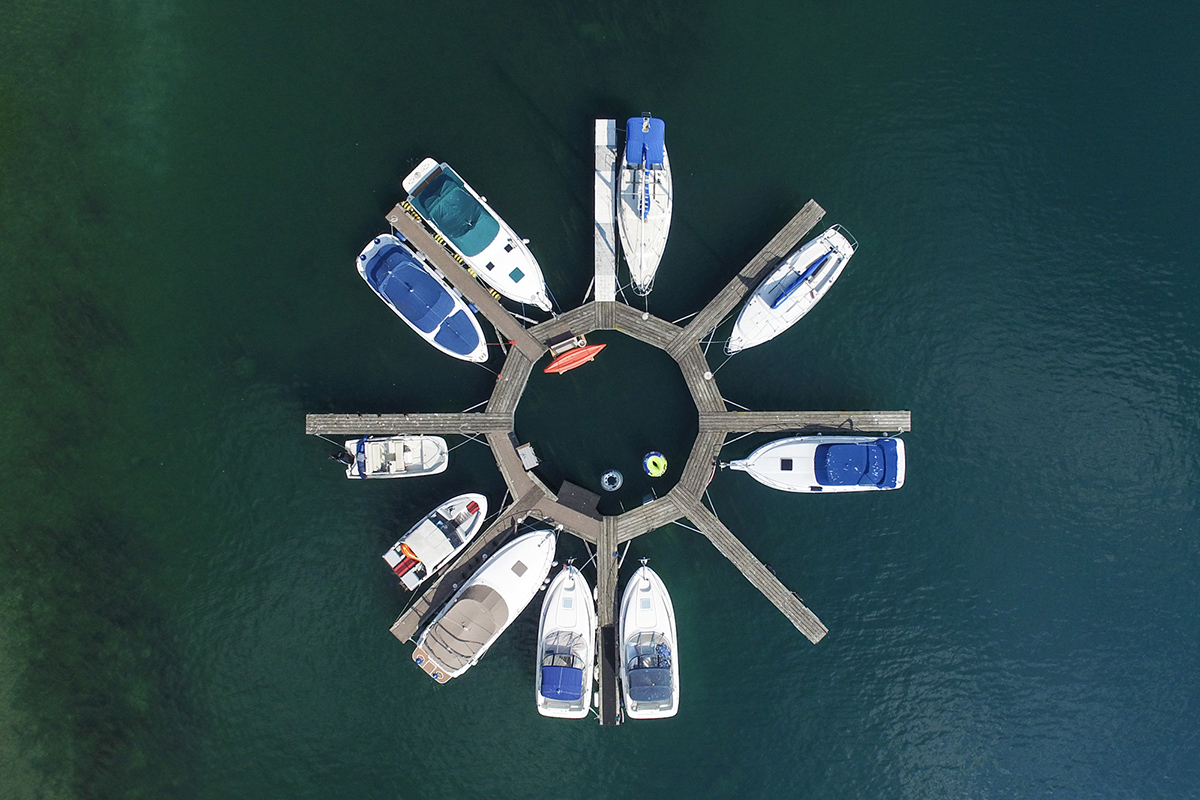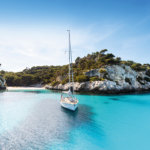 The International Council of Marine Industry Associations (ICOMIA), a global organisation representing the recreational marine industry with more than 100 members around the world, has announced new research outlining a portfolio of technologies best positioned to continue to propel the industry toward decarbonisation. The research, which specifically looks at marine propulsion in boats under 24m in length, reveals that due to the unique on-water environment for recreational boating, and the varied interests of boaters and the experiences they seek, a variety of solutions must be considered to continue reducing carbon emissions from recreational boats.
The International Council of Marine Industry Associations (ICOMIA), a global organisation representing the recreational marine industry with more than 100 members around the world, has announced new research outlining a portfolio of technologies best positioned to continue to propel the industry toward decarbonisation. The research, which specifically looks at marine propulsion in boats under 24m in length, reveals that due to the unique on-water environment for recreational boating, and the varied interests of boaters and the experiences they seek, a variety of solutions must be considered to continue reducing carbon emissions from recreational boats.
The research report, titled Pathways to Propulsion Decarbonisation for the Recreational Marine Industry, provides guidance to global governments and boating industry stakeholders as they work together to shape investments in technology and policy. The announcement comes as the global recreational marine industry, including manufacturers, suppliers and distributors, gathers in Amsterdam, Netherlands at METSTRADE, the marine equipment trade show, to share new technologies and emerging science amid discussions on the future of recreational boating around the world.
Decarbonisation is defined as the process of gradual reduction and/or neutralisation of the footprint from fossil fuel carbon. Recreational boats account for less than 0.1%[i] of global greenhouse gas (GHG) emissions, specifically 0.7%[ii] of transportation carbon dioxide (CO2) emissions in the United States and 0.4%[iii] of transportation CO2emissions in Europe. For context, 46%[iv] of emissions are generated by powering homes and industry, and 14%[v] of emissions are generated by global transportation. In the last two decades, the U.S. recreational marine industry alone has decreased marine engine emissions by more than 90% and increased fuel efficiency by more than 40%—and it isn’t slowing down. Beyond this progress, the global recreational marine industry remains committed to leading conservation efforts that protect the natural marine environment and identifying ways to expand its collective efforts.
“Our love for boating is fundamentally reliant on a healthy and sustainable marine environment, and we must take care of it to ensure the experiences boating provides can be enjoyed for generations to come,” said Darren Vaux, president of ICOMIA. “For the first time, we’ve united the global recreational marine industry around our most comprehensive, peer-reviewed research to explore opportunities that could reduce recreational boats’ carbon emissions, giving us the data we need to begin educating policy makers, our stakeholder community, and boaters on the varied decarbonisation solutions unique to our industry. This new research provides guidance on the focus for the innovations we can begin exploring today to create a better boating experience that reduces our environmental footprint.”
The Pathways to Decarbonisation for the Recreational Marine Industry report, commissioned by ICOMIA with leading global engineering consulting firm, Ricardo plc, investigated propulsion technologies across nine common recreational watercraft to compare the impact of lifetime GHG emissions, financial costs, usability, performance, range and infrastructure implications. The propulsion technologies investigated included:
- Battery electric (electric-powered boats and watercraft)
- Hybrid electric (internal combustion engines using liquid fuel and electric)
- Hydrogen (internal combustion engines or fuel cell)
- Internal combustion engines with sustainable marine fuels (sustainably produced liquid substitute for conventional fossil fuel)
- Internal combustion engines with gasoline or diesel

Unique Demands for Reducing Recreational Boating Carbon Emissions
Recreational boats are considerably different than most other transportation sectors, including automotive (on-road vehicles). Unlike automobiles, which are relied on to get from point A to B, recreational boats are used for leisure and vary significantly in not only how, but how often, they are used (e.g., many gasoline-powered recreational boats are operated an average of 35 to 48 hours per year). The research also looked at the impact on cost of ownership based on propulsion technology, and compared to boats on the water today, increases in cost of ownership ranging from 5% to 250% are expected until alternatives achieve market scale.
Due to the diversity of the types of boats in use and the varied experiences sought by boating consumers from fishing to watersports to cruising, the research shows there is no universal, “one-size-fits-all” approach to decarbonise recreational boats. As a result, in addition to current internal combustion and fossil fuel-powered boats, the industry must consider a portfolio of technologies, including:
Sustainable liquid marine fuels, such as renewable drop-in fuels, are expected to be the most suitable source of energy to decarbonise recreational boats by 2035 – by as much as 90% – without compromising the distance a boat can travel or its performance. Of the approximately 30 million recreational boats in use worldwide, with an average total lifecycle of 40 to 50 years and global annual sales making up approximately 2% of the size of the current market, there is great potential for increased decarbonisation of recreational boats with immediate, widespread adoption of sustainable marine fuels.
Hydrogen is an emerging technology and another potential source for reducing carbon emissions from boats, as long as its production process is optimised. Hydrogen, if produced via electrolysis with zero fossil fuel electricity, can reduce carbon emissions for certain craft categories.
Electric propulsion is part of the strategy to decarbonise, however, it is not universally suitable for all types of recreational craft and use cases. Electric-only propulsion may have a higher GHG contribution from raw materials and manufacturing than conventional propulsion systems. Watercraft types with lower utilisation are unlikely to find that battery electric systems yield a reduction in GHG compared to the baseline internal combustion engine. It is important to note that this study considers both battery lifetime in years and recharging cycles as battery performance is expected to degrade over time regardless of utilisation. This could impact watercrafts that have a long life span but are not frequently utilised as it may require several battery replacements throughout its lifetime.
Hybrid boats that use both electric and internal combustion engines powered by liquid fuels offer the potential for reducing carbon emissions from boats in certain scenarios—namely boats used for longer periods of time and for greater distances. As a result, hybrid technology provides the most potential for emissions reductions for boats that are used for rentals and other high-use environments.
The Path Forward
This new research paves the way for the recreational boating industry to begin educating global governments and boating industry stakeholders on the technologies and policies needed to further reduce carbon emissions.
Key next steps the industry is seeking include:
- The adoption of a technology neutral decarbonisation approach for marine environments.
- An acceleration of the development and distribution of sustainable marine fuels and consumer education campaigns that support the adoption of these new fuels.
- Consumer safety and government entities partnering with the recreational marine industry to establish marine electric technology standards and consumer safety protocols.
- An expansion of R&D tax credits and investments to improve electric battery density and hydrogen research that can be applied to the marine environment.
- Continued research to evaluate existing and emerging technologies and how to best apply them to the unique marine environment.
“Despite our progress over the past two decades, our industry recognises and embraces the challenges and opportunities to create a sustainable future for recreational boating. We are excited to support and encourage the latest innovations to create a better boating experience,” Vaux continued. “Sustainable marine fuels allow boaters to act now while the industry continues innovating and investing in new technologies that push the boundaries of what’s possible. Through this research and a global education campaign, we’re uniting the recreational marine industry around a portfolio of solutions that creates positive change through multiple pathways and a framework to collectively move our industry forward.”
To support the report findings, ICOMIA, on behalf of the global recreational marine industry, has launched Propelling Our Future, an international campaign to educate and advance the industry on research-driven technology solutions. To learn more and to download a summary of the full report, visit propellingourfuture.com.
[i] U.S. Environmental Protection Agency (EPA), https://www.epa.gov/ghgemissions/global-greenhouse-gas-emissions-data
[ii] U.S. EPA, Greenhouse Gas Explorer CSV File Download 1990–2020, “Greenhouse gas emissions from ships and boats in the United States”, 20 April 2023, https://cfpub.epa.gov/ghgdata/inventoryexplorer/#allsectors/allsectors/allgas/econsect/all
[iii] Panteia, TNO and Emisia, “Review study on the Recreational Craft Directive 2013/53/EU”, 15 September 2021, https://single-market-economy.ec.europa.eu/system/files/2021-11/Final%20Report%20Review%20Study%20on%20the%20Recreational%20Craft%20Directive%202013%2053%20EU.pdf
[iv] U.S. Environmental Protection Agency (EPA), https://www.epa.gov/ghgemissions/global-greenhouse-gas-emissions-data
[v] U.S. Environmental Protection Agency (EPA), https://www.epa.gov/ghgemissions/global-greenhouse-gas-emissions-data














